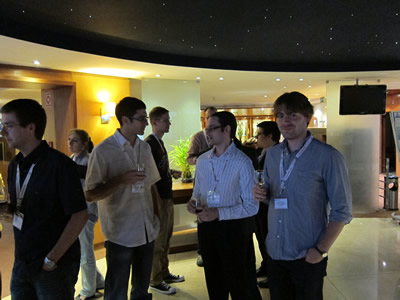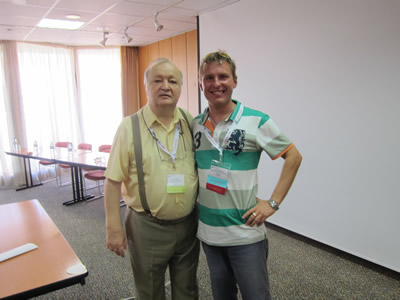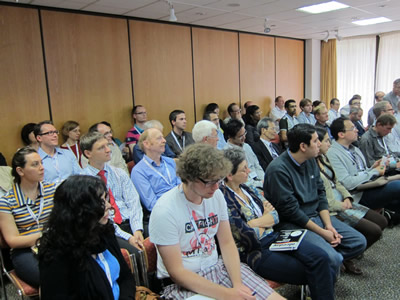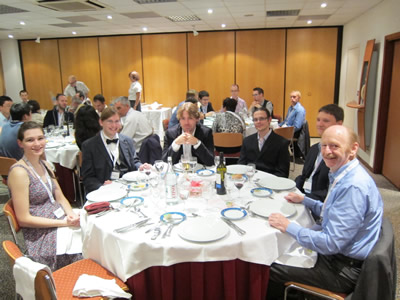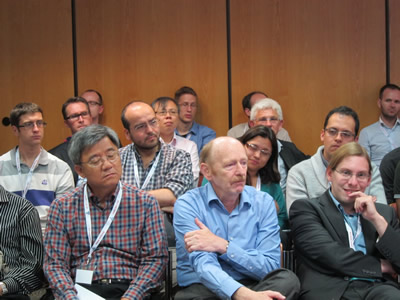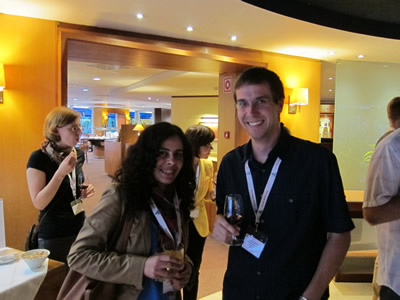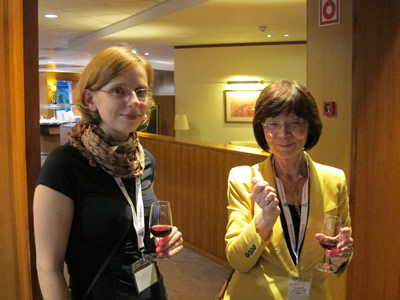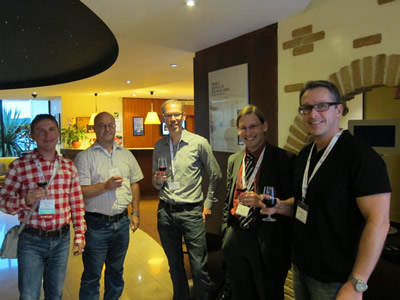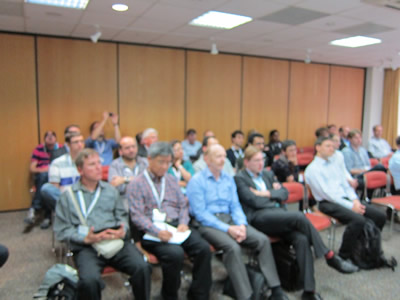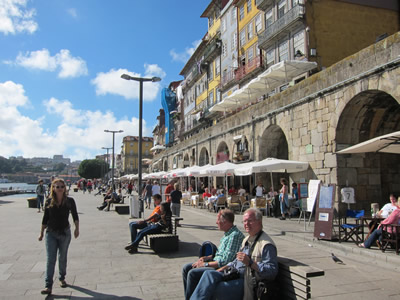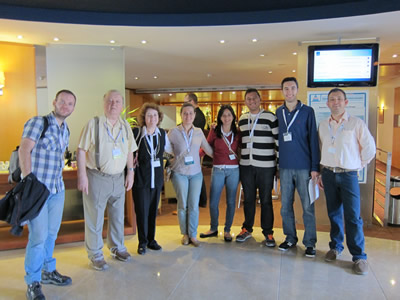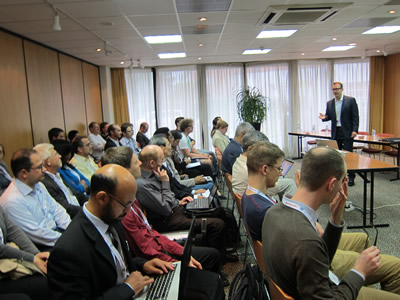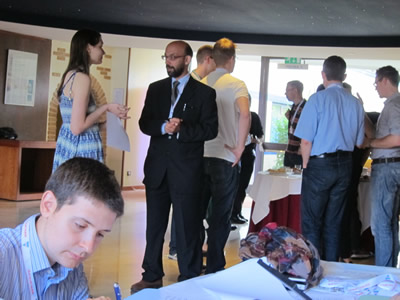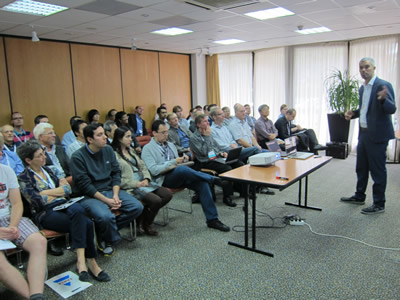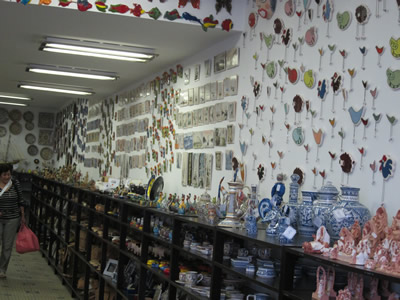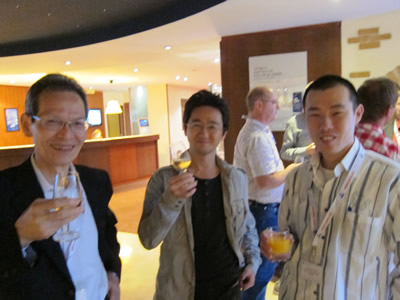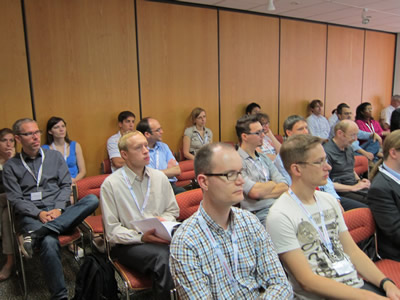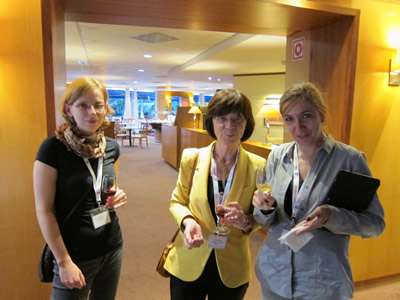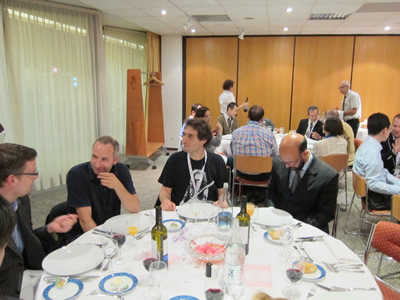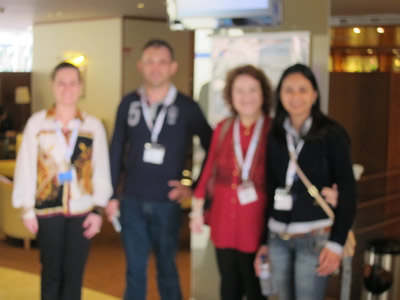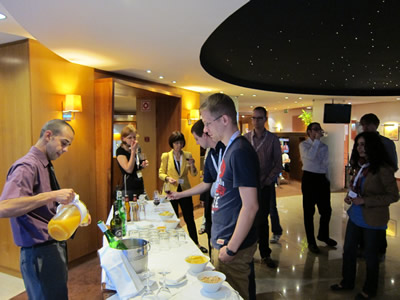ALLDATA 2021 - The Seventh International Conference on Big Data, Small Data, Linked Data and Open Data
April 18, 2021 - April 22, 2021
ALLDATA 2021: Call for Papers
Onsite and Online Options: In order to accommodate a large number of situations, we are offering the option for either physical presence or virtual participation (pdf slides or pre-recorded videos).
The volume and the complexity of available information overwhelm human and computing resources. Several approaches, technologies and tools are dealing with different types of data when searching, mining, learning and managing existing and increasingly growing information. From understanding Small data, the academia and industry recently embraced Big data, Linked data, and Open data. Each of these concepts carries specific foundations, algorithms and techniques, and is suitable and successful for different kinds of application. While approaching each concept from a silo point of view allows a better understanding (and potential optimization), no application or service can be developed without considering all data types mentioned above.
ALLDATA 2021, The International Conference on Big Data, Small Data, Linked Data and Open Data, follows a series of events bridging the concepts and the communities devoted to each of data categories for a better understanding of data semantics and their use, by taking advantage from the development of Semantic Web, Deep Web, Internet, non-SQL and SQL structures, progresses in data processing, and the new tendency for acceptance of open environments.
We solicit both academic, research, and industrial contributions. We welcome technical papers presenting research and practical results, position papers addressing the pros and cons of specific proposals, such as those being discussed in the standard fora or in industry consortia, survey papers addressing the key problems and solutions on any of the above topics short papers on work in progress, and panel proposals.
Industrial presentations are not subject to the format and content constraints of regular submissions. We expect short and long presentations that express industrial position and status.
Tutorials on specific related topics and panels on challenging areas are encouraged.
The topics suggested by the conference can be discussed in term of concepts, state of the art, research, standards, implementations, running experiments, applications, and industrial case studies. Authors are invited to submit complete unpublished papers, which are not under review in any other conference or journal in the following, but not limited to, topic areas.
All topics and submission formats are open to both research and industry contributions.
ALLDATA 2021 conference tracks:
Challenges in processing Big Data and applications
Data classification: small/big/huge, volume, velocity, veridicity, value, etc; Data properties: syntax, semantics, sensitivity, similarity, scarcity, spacial/temporal, completeness, accuracy, compactness, etc.; Data processing: mining, searching, feature extraction, clustering, aggregating, rating, filtering, etc.; Data relationships: linked data, open data, linked open data, etc. Exploiting big/linked data: upgrading legacy open data, integrating probabilist models, spam detection, datasets for noise corrections, predicting reliability, pattern mining, linking heterogeneous dataset collections, exploring type-specific topic profiles of datasets, efficient large-scale ontology matching etc.; Applications: event-based linked data, large scale multi-dimensional network analysis, error detection of atmospheric data, exploring urban data in smart cities, studying health fatalities, estimating the energy demand at real-time in cellular networks, multilingual word sense disambiguation, creating open source tool for semantically enriching data, etc.
Advanced topics in Deep/Machine learning
Distributed and parallel learning algorithms; Image and video coding; Deep learning and Internet of Things; Deep learning and Big data; Data preparation, feature selection, and feature extraction; Error resilient transmission of multimedia data; 3D video coding and analysis; Depth map applications; Machine learning programming models and abstractions; Programming languages for machine learning; Visualization of data, models, and predictions; Hardware-efficient machine learning methods; Model training, inference, and serving; Trust and security for machine learning applications; Testing, debugging, and monitoring of machine learning applications; Machine learning for systems.
Approaches for Data/Big Data processing using Machine Learning
Machine learning models (supervised, unsupervised, reinforcement, constrained, etc.);
Generative modeling (Gaussian, HMM, GAN, Bayesian networks, autoencoders, etc.);
Explainable AI (feature importance, LIME, SHAP, FACT, etc.);
Bayesian learning models;
Prediction uncertainty (approximation learning, similarity);
Training of models (hyperparameter optimization, regularization, optimizers);
Active learning (partially labels datasets, faulty labels, semi-supervised);
Applications of machine learning (recommender systems, NLP, computer vision, etc.);
Data in machine learning (no data, small data, big data, graph data, time series, sparse data, etc.)
Big Data
Big data foundations; Big data architectures; Big data semantics, interoperability, search and mining; Big data transformations, processing and storage; Big Data management lifecycle, Big data simulation, visualization, modeling tools, and algorithms; Reasoning on Big data; Big data analytics for prediction; Deep Analytics; Big data and cloud technologies; Big data and Internet of Things; High performance computing on Big data; Scalable access to Big Data; Big data quality and provenance, Big data persistence and preservation; Big data protection, integrity, privacy, and pseudonymisation mechanisms; Big data software (libraries, toolkits, etc.); Big Data visualisation and user experience mechanisms; Big data understanding (knowledge discovery, learning, consumer intelligence); Unknown in large Data Graphs; Applications of Big data (geospatial/environment, energy, media, mobility, health, financial, social, public sector, retail, etc.); Business-driven Big data; Big Data Business Models; Big data ecosystems; Big data innovation spaces; Big Data skills development; Policy, regulation and standardization in Big data; Societal impacts of Big data
Small Data
Social networking small data; Relationship between small data and big data; Statistics on Small data; Handling Small data sets; Predictive modeling methods for Small data sets; Small data sets versus Big Data sets; Small and incomplete data sets; Normality in Small data sets; Confidence intervals of small data sets; Causal discovery from Small data sets; Deep Web and Small data sets; Small datasets for benchmarking and testing; Validation and verification of regression in small data sets; Small data toolkits; Data summarization
Linked Data
RDF and Linked data; Deploying Linked data; Linked data and Big data; Linked data and Small data; Evolving the Web into a global data space via Linked data; Practical semantic Web via Linked data; Structured dynamics and Linked data sets; Quantifying the connectivity of a semantic Linked data; Query languages for Linked data; Access control and security for Linked data; Anomaly detection via Linked data; Semantics for Linked data; Enterprise internal data 'silos' and Linked data; Traditional knowledge base and Linked data; Knowledge management applications and Linked data; Linked data publication; Visualization of Linked data; Linked data query builders; Linked data quality
Open Data
Open data structures and algorithms; Designing for Open data; Open data and Linked Open data; Open data government initiatives; Big Open data; Small Open data; Challenges in using Open data (maps, genomes, chemical compounds, medical data and practice, bioscience and biodiversity); Linked open data and Clouds; Private and public Open data; Culture for Open data or Open government data; Data access, analysis and manipulation of Open data; Open addressing and Open data; Specification languages for Open data; Legal aspects for Open data; Open Data publication methods and technologies, Open Data toolkits; Open Data catalogues, Applications using Open Data; Economic, environmental, and social value of Open Data; Open Data licensing; Open Data Business models; Data marketplaces
Deadlines:
Submission | Feb 08, 2021 |
Notification | Mar 03, 2021 |
Registration | Mar 13, 2021 |
Camera ready | Mar 16, 2021 |
Deadlines differ for special tracks. Please consult the conference home page for special tracks Call for Papers (if any).
INSTRUCTION FOR THE AUTHORS
Authors of selected papers will be invited to submit extended versions to one of the IARIA Journals.
Publisher: XPS (Xpert Publishing Services)
Archived: ThinkMindTM Digital Library (free access)
Prints available at Curran Associates, Inc.
How to submit to appropriate indexes.
Only .pdf or .doc files will be accepted for paper submission. All received submissions will be acknowledged via an automated system.
Contribution types
- regular papers [in the proceedings, digital library]
- short papers (work in progress) [in the proceedings, digital library]
- ideas: two pages [in the proceedings, digital library]
- extended abstracts: two pages [in the proceedings, digital library]
- posters: two pages [in the proceedings, digital library]
- posters: slide only [slide-deck posted on www.iaria.org]
- presentations: slide only [slide-deck posted on www.iaria.org]
- demos: two pages [posted on www.iaria.org]
FORMATS
Only .pdf or .doc files will be accepted for paper submission. All received submissions will be acknowledged via an automated system.
Final author manuscripts will be 8.5" x 11", not exceeding 6 pages; max 4 extra pages allowed at additional cost.
Helpful information for paper formatting for MS Word can be found here.
There is a community provided LaTeX template: the CTAN package iaria (with full IARIA formatting rules, including IARIA citation style, but for providing citation style it is tightly bound to pdflatex+biblatex+biber). In addition, there is also iaria-lite (not bound to pdflatex+biblatex+biber, but compatible with any TeX stack; thus, it cannot provide the IARIA citation formattings, but only the titlepage and content-related IARIA formatting rules). Based on the iaria package, there is a minimal working example as Overleaf template. When you are using the LaTeX templates, please still adhere to the additional editorial rules.
Slides-based contributions can use the corporate/university format and style.
Your paper should also comply with the additional editorial rules.
Once you receive the notification of contribution acceptance, you will be provided by the publisher an online author kit with all the steps an author needs to follow to submit the final version. The author kits URL will be included in the letter of acceptance.
We would recommend that you should not use too many extra pages, even if you can afford the extra fees. No more than 2 contributions per event are recommended, as each contribution must be separately registered and paid for. At least one author of each accepted paper must register to ensure that the paper will be included in the conference proceedings and in the digital library, or posted on the www.iaria.org (for slide-based contributions).
CONTRIBUTION TYPE
Regular Papers (up to 6-10 page article -6 pages covered the by regular registration; max 4 extra pages allowed at additional cost- ) (oral presentation)
These contributions could be academic or industrial research, survey, white, implementation-oriented, architecture-oriented, white papers, etc. They will be included in the proceedings, posted in the free-access ThinkMind digital library and sent for indexing. Please submit the contributions following the instructions for the regular submissions using the "Submit a Paper" button and selecting the appropriate contribution type. 12-14 presentation slides are suggested.
Short papers (work in progress) (up to 4 pages long) (oral presentation)
Work-in-progress contributions are welcome. These contributions represent partial achievements of longer-term projects. They could be academic or industrial research, survey, white, implementation-oriented, architecture-oriented, white papers, etc. Please submit the contributions following the instructions for the regular submissions using the "Submit a Paper" button and selecting the contribution type as work in progress. Contributors must follow the conference deadlines, describing early research and novel skeleton ideas in the areas of the conference topics. The work will be published in the conference proceedings, posted in the free-access ThinkMind digital library and sent for indexing. For more details, see the Work in Progress explanation page. 12-14 presentation slides are suggested.
Ideas contributions (2 pages long) (oral presentation)
This category is dedicated to new ideas in their very early stage. Idea contributions are expression of yet to be developed approaches, with pros/cons, not yet consolidated. Ideas contributions are intended for a debate and audience feedback. Please submit the contributions following the instructions for the regular submissions using the "Submit a Paper" button and selecting the contribution type as Idea. Contributors must follow the conference deadlines, describing early research and novel skeleton ideas in the areas of the conference topics. The work will be published in the conference proceedings, posted in the free-access ThinkMind digital library and sent for indexing. For more details, see the Ideas explanation page. 12-14 presentation slides are suggested.
Extended abstracts (2 pages long) (oral presentation)
Extended abstracts summarize a long potential publication with noticeable results. It is intended for sharing yet to be written, or further on intended for a journal publication. Please submit the contributions following the instructions for the regular submissions using the "Submit a Paper" button and selecting the contribution type as Extended abstract. Contributors must follow the conference deadlines, describing early research and novel skeleton ideas in the areas of the conference topics. The work will be published in the conference proceedings, posted in the free-access ThinkMind digital library and sent for indexing. 12-14 presentation slides are suggested.
Posters (paper-based, two pages long) (oral presentation)
Posters are intended for ongoing research projects, concrete realizations, or industrial applications/projects presentations. The poster may be presented during sessions reserved for posters, or mixed with presentation of articles of similar topic. A two-page paper summarizes a presentation intended to be a POSTER. This allows an author to summarize a series of results and expose them via a big number of figures, graphics and tables. Please submit the contributions following the instructions for the regular submissions using the "Submit a Paper" button and selecting the contribution type as Poster Two Pages. Contributors must follow the conference deadlines, describing early research and novel skeleton ideas in the areas of the conference topics. The work will be published in the conference proceedings, posted in the free-access ThinkMind digital library and sent for indexing. 8-10 presentation slides are suggested. Also a big Poster is suitable, used for live discussions with the attendees, in addition to the oral presentation.
Posters (slide-based, only) (oral presentation)
Posters are intended for ongoing research projects, concrete realizations, or industrial applications/projects presentations. The poster may be presented during sessions reserved for posters, or mixed with presentation of articles of similar topic. The slides must have comprehensive comments. This type of contribution only requires a 8-10 slide-deck. Please submit the contributions following the instructions for the regular submissions using the "Submit a Paper" button and selecting the contribution type as Poster (slide-only). The slide-deck will be posted, post-event, on www.iaria.org.
8-10 presentation slides are suggested. Also a big Poster is suitable, used for live discussions with the attendees, additionally to the oral presentation.
Presentations (slide-based, only) (oral presentation)
These contributions represent technical marketing/industrial/business/positioning presentations. This type of contribution only requires a 12-14 slide-deck. Please submit the contributions following the submission instructions by using the "Submit a Paper" button and selecting the contribution type as Presentation (slide-only). The slide-deck will be posted, post-event, on www.iaria.org.
12-14 presentation slides are suggested.
Demos (two pages) [posted on www.iaria.org]
Demos represent special contributions where a tool, an implementation of an application, or a freshly implemented system is presented in its alfa/beta version. It might also be intended for thsoe new application to gather the attendee opinion. A two-page summary for a demo is intended to be. It would be scheduled in special time spots, to ensure a maximum attendance from the participants. Please submit the contributions following the submission instructions by using the "Submit a Paper" button and selecting the contribution type as Demos. The Demos paper will be posted, post-event, on www.iaria.org.
Tutorial proposals
Tutorials provide overviews of current high interest topics. Proposals should be for 2-3 hour long. Proposals must contain the title, the summary of the content, and the biography of the presenter(s). The tutorial slide decks will be posted on the IARIA site.
Please send your proposals to tutorial proposal
Panel proposals
The organizers encourage scientists and industry leaders to organize dedicated panels dealing with controversial and challenging topics and paradigms. Panel moderators are asked to identify their guests and manage that their appropriate talk supports timely reach our deadlines. Moderators must specifically submit an official proposal, indicating their background, panelist names, their affiliation, the topic of the panel, as well as short biographies. The panel slide deck will be posted on the IARIA site.
Please send your proposals to panel proposal


